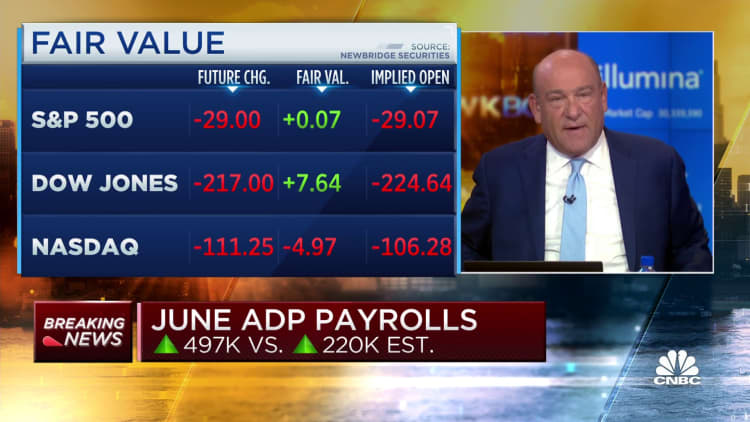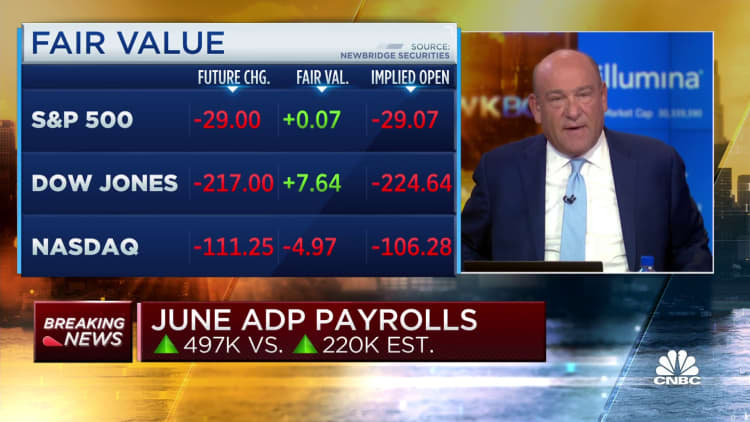Sturti | E+ | Getty Images
The U.S. job market is gradually cooling but remains hot despite a year-long government campaign to reign it in, amounting to a favorable environment for many jobseekers, economists said.
“It still boils down to higher worker leverage, better outside opportunities, an easier time exchanging jobs for better ones and substantially greater job security,” said Julia Pollak, chief economist at ZipRecruiter.
“You’re in a lucky position,” she added, referring to employees.
Federal and private labor data issued Thursday support that notion.
More from Personal Finance:
Companies recognize importance of “out of office” time
30% of Americans say “tipping culture is out of control”
White House gives student loan borrowers payment leeway
In May, layoffs declined slightly and employers hired more workers, according to the Job Openings and Labor Turnover Survey, issued monthly by the U.S. Bureau of Labor Statistics.
Americans also quit their jobs in larger numbers, according to the JOLTS report. Since most workers quit for new employment, the uptick suggests a rebound in workers’ confidence they can find a new job, economists said.
While job openings — a barometer of business’ demand for workers — fell by about 500,000 in May, they remain well above their pre-pandemic level.
In all, job openings and monthly quits are respectively 40% and 15% higher than they were before the Covid-19 pandemic, while monthly layoffs are 21% lower, pointing to a “robust and resilient labor market,” Pollak said.

Further, payroll processing firm ADP said Thursday that jobs surged by 497,000 in the private sector in June — handily beating the 220,000 estimate. The U.S. Department of Labor will issue its monthly jobs report on Friday morning, and the ADP data may signal continued strength across the U.S. job market.
Rate hikes, banking turmoil have little effect
Workers gained unprecedented leverage as the U.S. economy reopened broadly in early 2021. Workers started to quit in record numbers — in a trend that came to known as the “great resignation” — and their wages grew at the fastest pace in decades.
The job market has somewhat cooled as the Federal Reserve has raised borrowing costs to rein in inflation, and as banks have pulled back on lending due to turmoil earlier this year. But it has continued to defy expectations to the upside.
“It’s really mind-blowing that with all the monetary tightening, with inflation, a banking crisis, that job openings are still this high,” said Aaron Terrazas, chief economist at career site Glassdoor.
It’s really mind-blowing that … job openings are still this high.
Aaron Terrazas
chief economist at Glassdoor
“Overall, the market continues a gradual slowdown,” he added.
However, it’s not good news for all workers; there are some areas of weakness, economists said.
“It’s still the story of a two-track economy,” Terrazas said.
For example, the information sector (which includes technology and media companies) saw 6% more layoffs and 17% fewer quits in May relative to pre-pandemic levels, Pollak said, citing JOLTS data.
Broadly, while jobseekers can take comfort in ample hiring and their ability to quit for better jobs, it may take longer to find a good match amid a gradual labor market slowdown, Pollak said.
That might mean signing up for job alerts and being sure to apply right away, she said.
“It is a numbers game, and workers may have to play it more smartly going forward,” Pollak added.


